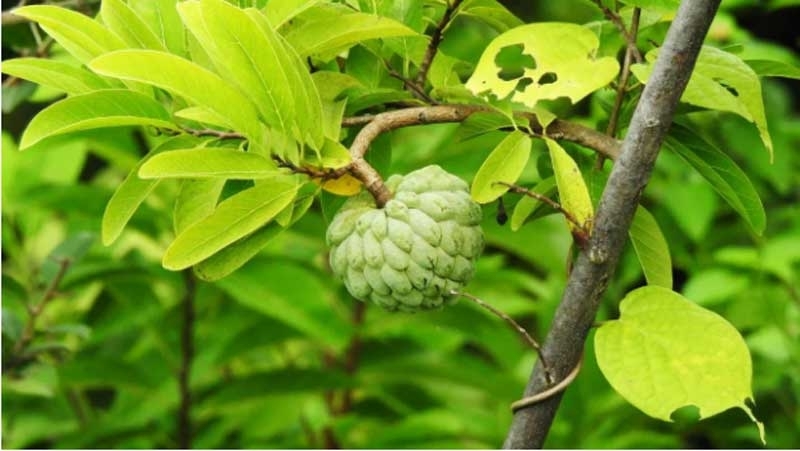Enter your Email Address to subscribe to our newsletters
Custard apple turns game-changer for horticulture farmers

Patna: The custard apple is a common fruit of India. It is scientifically known as Annona squamosa L. This tropical fruit was introduced by the Portuguese in India in the 16th century. Currently, its farming is common in every nook and granny of the country because it is resilient to tough climatic conditions. This fruit has turned into a boon for the horticulture farmers.
A new variety, Thar Amrit Custard Apple, developed by the Central Horticultural Experiment Station in Gujarat and released by ICAR-CIAH in 2022, has brought a revolution in farming practices. The fruit is replete with excellent taste and adoptability, grows in all environments, and the yield of custard apple is high, boosting farmers’ incomes.
Also Read: Tata Steel organizes 13th annual flower and vegetable show in Bokaro
Thar Amrit tree starts bearing fruit in the second year after its plantation. The fruits are known for their aroma and taste; the processing of these fruits needs extra care due to the content of 63.58% pulp. Besides this, custard apples are consumed fresh. Currently, several states, including Maharashtra, Bihar, Tamil Nadu, Odisha, Karnataka, Assam, Telangana, and Andhra Pradesh, are the major custard apple-growing states in India. Horticulture farmers take a keen interest in planting these fruits and fetching a hefty amount of money.
Custard apples have a lot of nutritional value, such as potassium, iron, and vitamin C, boosting immunity, making digestion better, and improving overall health. The fruit’s roots were being traditionally used in Ayurvedic and Unani treatments. Thar Amrit is not just a fruit; it’s a step toward sustainable farming and better health.




